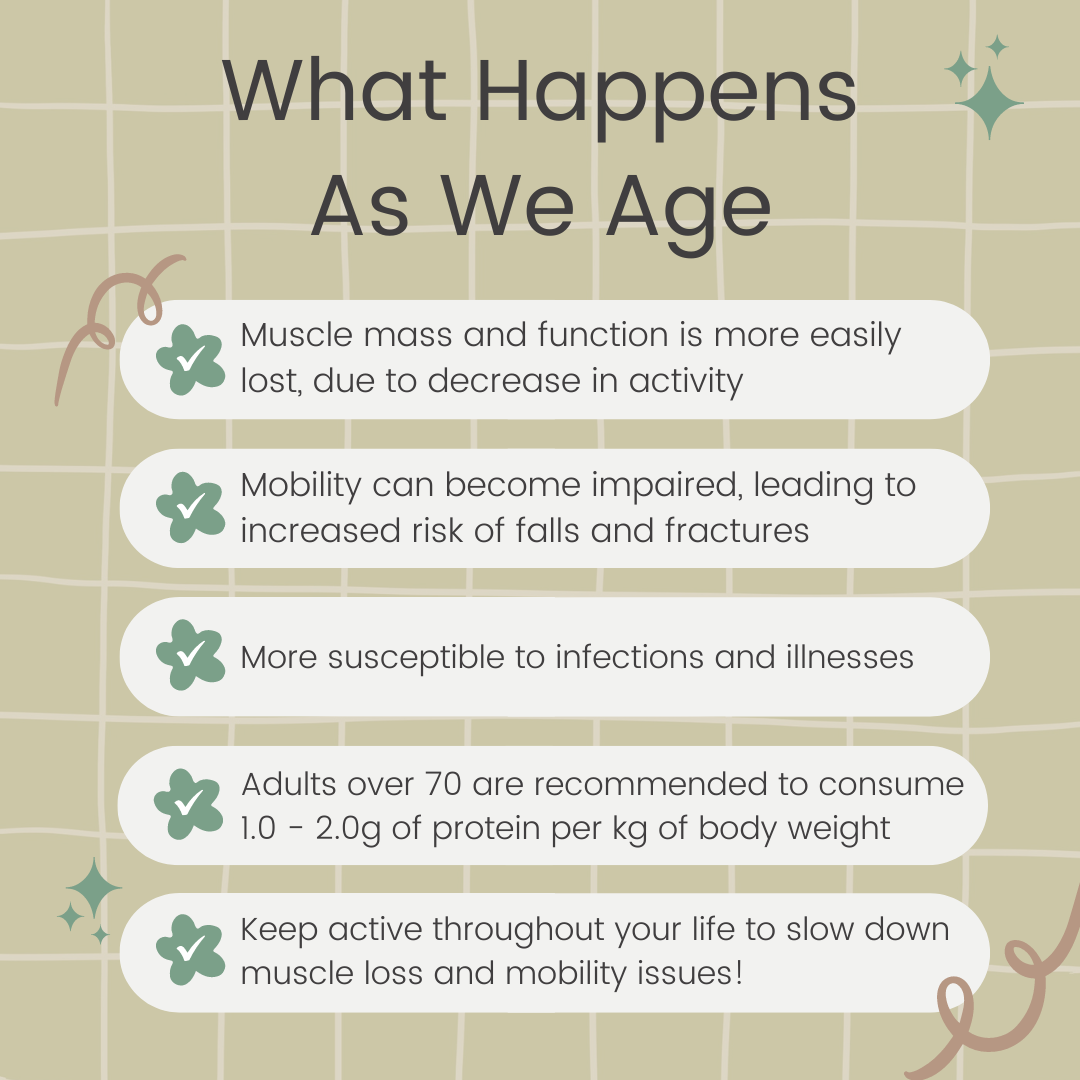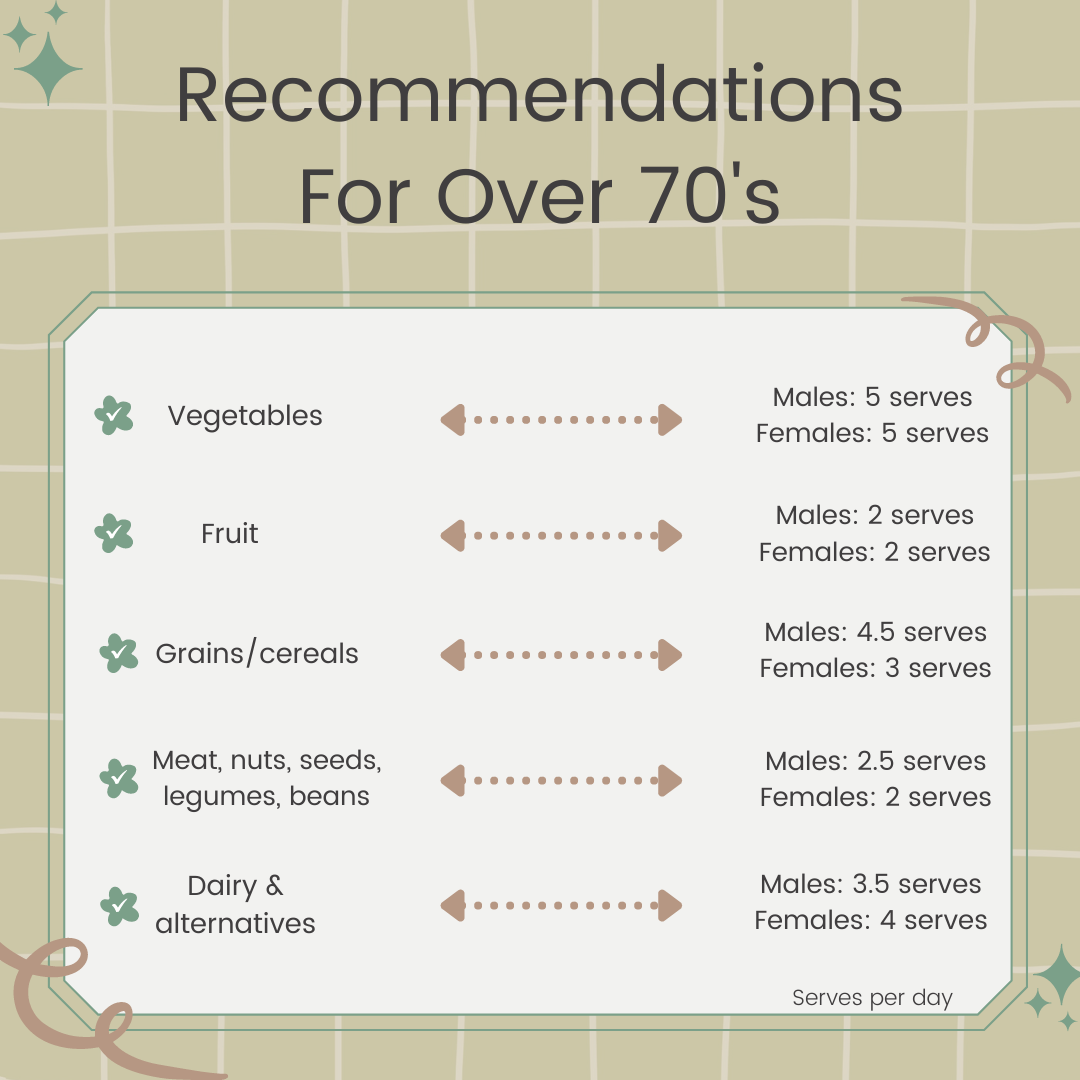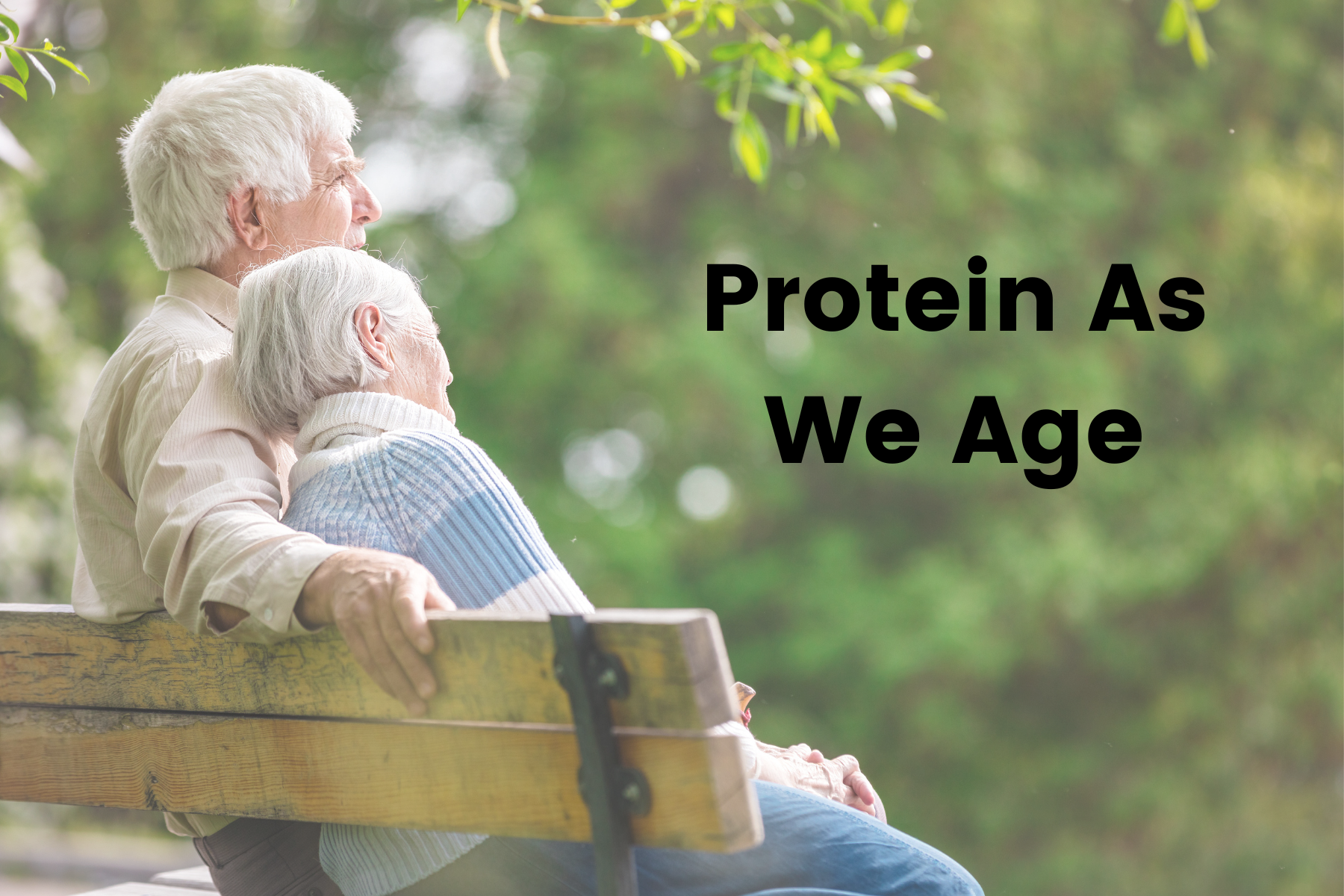Our bodies undergo numerous changes throughout our lifetime, and one crucial aspect that demands attention is our dietary intake, particularly protein. Protein plays a vital role in maintaining and enhancing overall health, especially for individuals over the age of 70.
As we age, our bodies tend to lose muscle mass and strength, a condition known as sarcopenia. Adequate protein intake becomes essential to combat this! Protein provides the necessary amino acids for muscle repair, growth, and maintenance, helping all individuals, but in this case, older adults will preserve muscle mass and function. Additionally, protein assists in wound healing, immune function, hormone production, and enzyme synthesis, all of which are crucial for healthy aging.

One of the biggest challenges for the elderly is eating enough food. This is a challenge for two reasons. The first is that being older generally means our bodies process food more slowly, leaving us feeling fuller for longer. Secondly, our hormones also change – the satiety hormone is more concentrated, and the hunger hormone is less easily activated. As we’re also often less active as we get older, most will need a lower-energy, nutrient-dense diet, and this is why a higher protein intake is especially important for those in older generations.
For individuals over 70, the recommended daily protein intake increases due to factors such as decreased muscle protein synthesis and increased protein breakdown. The general guideline suggests consuming 1.0 - 2.0 grams of protein per kilogram of body weight per day for older adults, compared to the standard recommendation of 0.8 grams per kilogram for adults.
To help older persons meet their daily protein requirements, the Australian Guide to Healthy Eating recommends the following serves of the below protein contributing food groups:

However, not getting enough protein in this age bracket can have significant downsides. Inadequate protein intake may accelerate muscle loss, leading to frailty, impaired mobility, and increased risk of falls and fractures. Insufficient protein intake can also compromise immune function, making older adults more susceptible to infections and illnesses.
Prioritising adequate protein intake in individuals over 50, this will support healthy aging, preserve muscle mass and function, and minimise the risk of age-related health issues. Check out our high-protein meals and snacks to help you increase your protein intake!



